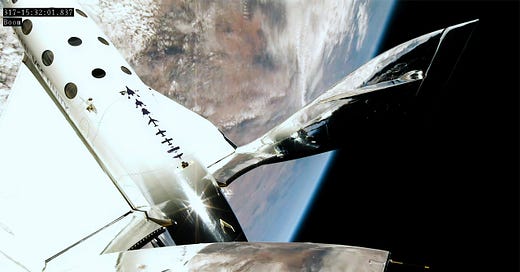It looks as if long-suffering Virgin Galactic (NYSE: SPCE; $2.96 +0.06 +2.07%) shareholders who have watched the value of their investments in the space tourism company sink could soon get some relief.
On June 17, attorneys for Virgin Galactic and plaintiffs in a class-action suit notified judges in the case that they had reached a settlement in principle over claims that Richard Branson’s company misled investors by concealing engineering flaws in its vehicles and accounting problems in its financial statements.
“The Parties are finalizing a confidential term sheet to memorialize that settlement (‘Term Sheet’). Within 90 days of execution of the Term Sheet, the Parties will finalize and execute a stipulation of settlement, after which Plaintiffs will use their best efforts to file a motion for preliminary approval of the settlement within seven days,” the attorneys wrote.
Court documents indicate the notification of a tentative settlement came two days before plaintiffs’ lawyers were due to continue deposing Virgin Galactic officials. President Michael Moses was deposed on Jan. 23-24, 2025, according to documents.
Virgin Galactic went public in October 2019 through a reverse merger with Social Capital Hedosophia (SCH), a special purpose acquisition company led by Chamath Palihapitiya. SCH was a publicly traded investment company whose sole purpose was to find another company with which to merger and take public.
The tentative settlement would apply to individuals or entities that purchased publicly traded stock in Virgin Galactic and/or SCH between the announcement of the merger on July 10, 2019 and Aug. 4, 2022.
In material supporting the 2019 merger, the companies projected that Virgin Galactic would begin commercial suborbital flights in mid-2020. They did not disclose that Virgin Galactic’s lone suborbital SpaceShipTwo vehicle, VSS Unity, had been seriously damaged during a flight test in February 2019.
The company didn’t conduct its first commercial flight with paying customers on board until June 2023. Virgin Galactic retired VSS Unity in June 2024 after the vehicle completed only seven commercial flights with 23 paying customers aboard. The company said the ship was not profitable because it only carried four passengers and took about a month to turn around between flights.
Repeated delays in the start of commercial service and the retirement of VSS Unity sent Virgin Galactic’s stock price below $1. To avoid being delisted, the company undertook a 20-to-1 reverse stock split in June 2024. That meant every 20 shares were converted into a single share in the company. The stock was trading at $2.96 on Thursday.
Virgin Galactic is currently developing advanced Delta-class spaceships that will be capable of flying multiple times per month with six people in the passenger cabin. The new vehicles are expected to enter service in 2026.
Defendants in the lawsuit include Virgin Galactic Holdings, CEO Michael Colglazier, former CEO now Congressman George Whitesides, CFO Doug Ahrens, and former CFO Jon Campagna.





This article prompts the obvious question:
What are the details that were not disclosed concerning Virgin Galactic’s SpaceShipTwo vehicle VSS Unity and how was it seriously damaged during a flight test in February 2019?
Wikipedia shows the only flight that would seem to qualify as the candidate for this was Flight 16 / VSS Unity VF-01
https://en.wikipedia.org/wiki/VSS_Unity_VF-01